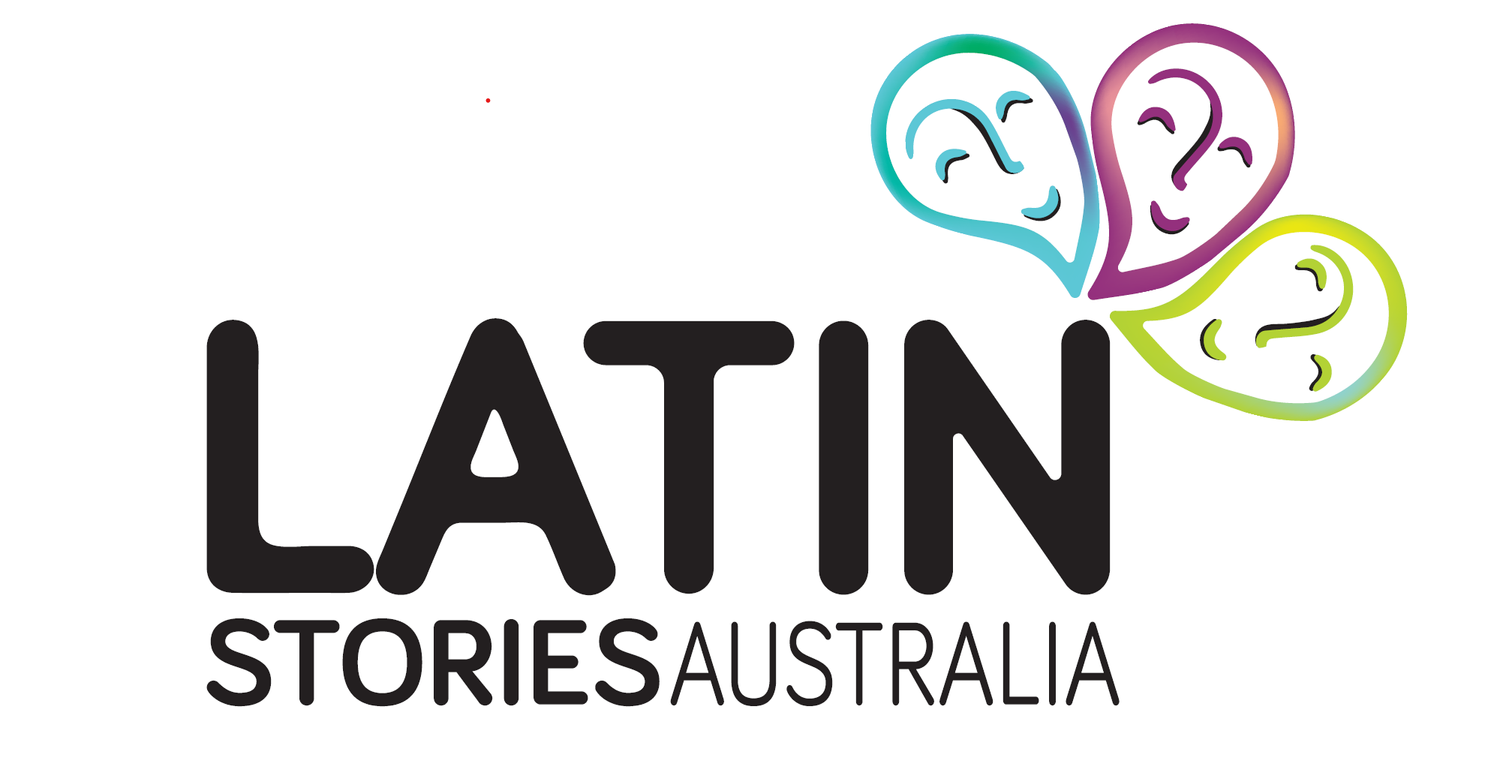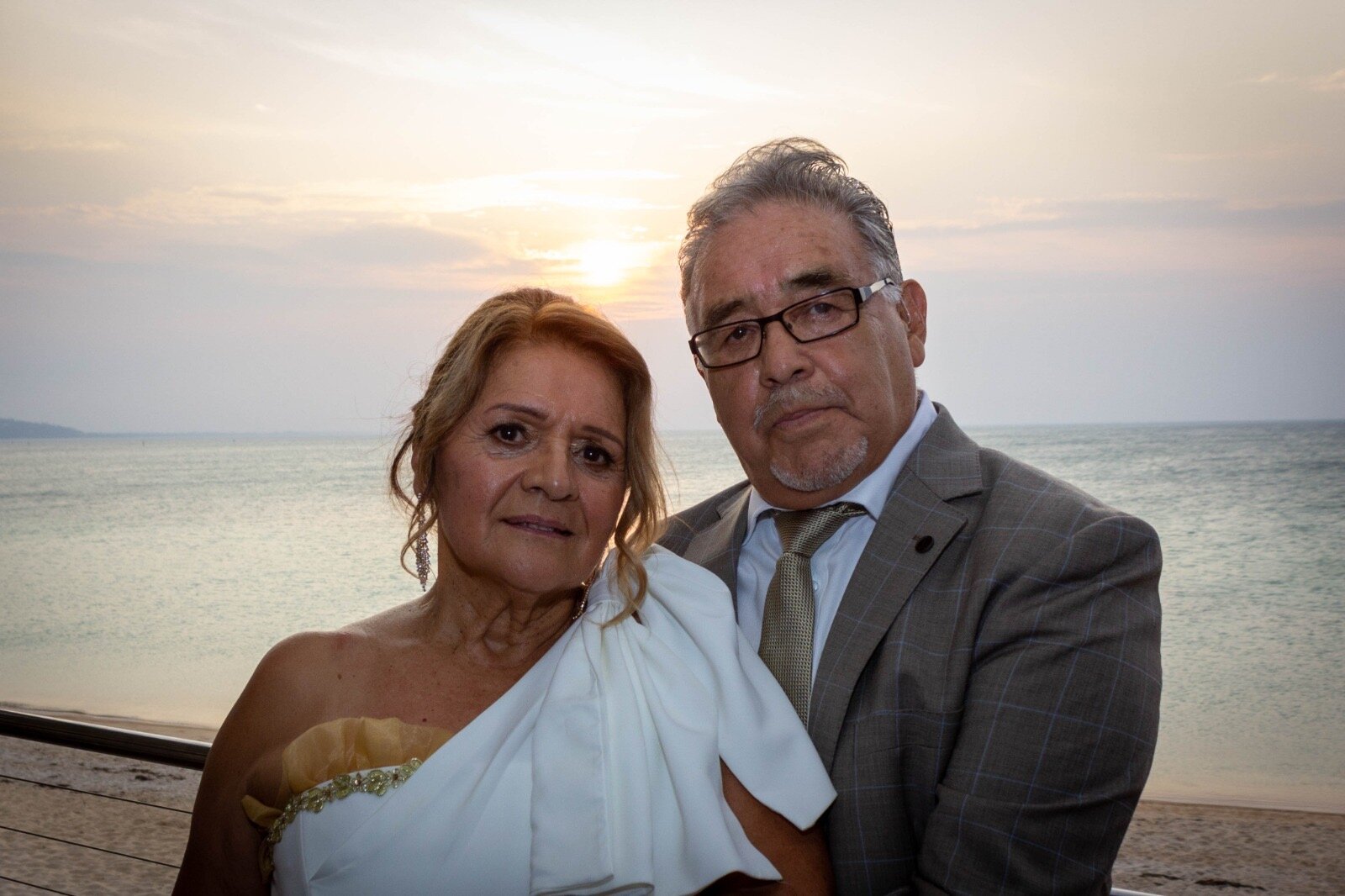Angela Barra
“Listen to your needs and be proud of your decisions”
Angela Barra
Country of origin: Peru.
State of residence: VIC. Occupation: Teacher and choreographer. Favourite places: Port Douglas, Noosa and Mornington Peninsula. Upon arrival: surprised by the huge green areas, nature, beautiful national parks, beaches and relaxed people.
This story is part of “Nuestras Voces”
Interviewed by Carlos Colina. Edited by Cristina Abela
Angela is a Physical Education and Language Teacher, recognised for her work as a Peruvian Folk dancer, choreographer and performer in a variety of Spanish Festivals and Australian events. She also organises and participates in charity work for different Spanish speakers and Australian communities, for which she has received awards for her cultural and social contribution.
TELL US YOUR STORY
I met my husband Pablo when I was fourteen years old and we dated for 5 years until we got married on the 2nd of January 1970. We came to Australia to fulfil our dreams as parents and as a couple. It took us three years back in Peru to get the visas because our professions were not in demand in Australia and also because of the language barrier. We finally got the visas granted, allowing us to travel to Australia where our destiny was Melbourne. We signed a contract at the Australian Embassy in Lima for two years and then we were supposed to decide if we wanted to stay or to go back to Peru. We arrived in Australia 46 years ago on the 10th of April of 1974. Peru at the time was going through a period of serious political and economic instability and the army was taking over the country so we left our whole life behind to start a new one with our young family. My sister in law who was living in Melbourne received us and we also received lots of support from the Australian government including English classes, income and health support. It was hard to start again; however, it was rewarding, and we do not regret the sacrifices we made.
Before moving to Australia I worked as a Physical Education teacher in Peru for a couple of years. My career as a Physical Education Teacher in Australia took off in February 1976, when after taking a number of English courses and learning about the education system, I felt confident to give it a go and get my first job. I worked at Sunshine Technical School. Later, I was encouraged to complete studies as an Outdoor Education, Recreation, Health and Language teacher, to become more qualified and to get more opportunities. I took this courses in Monash and La Trobe Universities which gave me a different view of what I was doing. Alongside my teaching career, I was the manager of the Victorian School Soccer team for five years. My job was to organise the training, venues, uniforms, tickets, excursions and look after the students welfare during the length of the National Championship. We managed to perform well and we obtained a Bronze medal for Victoria in 1986. My career as a Language teacher kicked off in 1995 when I was teaching at Brentwood Sec College where I was introduce to teach Spanish at the VSL on Saturday School. I taught at Wantirna Sec College for 10 years and at the Victorian School of Languages for 15 years at primary and secondary levels. After my retirement in 2012, I started working as Spanish teacher for Farolito and Chiquitines until I had an accident - I fractured my arm and shoulder. Now, I only work as a Spanish Casual Relief Teacher at Patterson Lake Primary School.
I am also a choreographer and dancer of Peruvian folklore. In 1976 Pablo and I attended a party with another two couples at the Chilean Club in North Melbourne, we had the chance to show off our skills in dancing Huayno - a genre of popular Peruvian Andean music and dance. People loved it and encouraged us to form a dancing group. It was the beginning of our beloved Peruvian folklore Dancing Group. This has completed my life! Many dancers of all ages and different Spanish speaking countries, Australia, Europe and Asia were part of this incredible journey. The highlight with the dance group was performing at a charity event for Peru at the Art Centre in Federation Square. This event was organised by the Sorelli and Friends, a group of professional Australian artists who had travelled to Peru and fell in love with the country but were also moved by the poverty and lack of health facilities in my country. They contacted Caritas Australia and together we developed this huge event. It was an amazing experience, very emotional and rewarding because we knew we were helping our people in need. I retired as choreographer in 2012, but the group is currently is directed by Liz Green (Peruvian) who is keeping this precious thing alive. It has meant a lot for me! I have to thank my husband Pablo and our family, for their unconditional support, sacrifices and the work they put into this odyssey by my side. I am also very grateful to the unforgettable people who gave everything they could to make this venture successful.
Another chapter in my life here in Australia was me as a soccer, basketball and volleyball player and also my work as a active member and player of Peru United Soccer Club. Since 1990 together with my husband as a coach and president of the club; my kids and brothers as players and my family in general dedicating our weekends to the club for almost 25 years. In the early 90’s I was asked to form a Women’s Soccer team for the very first time at the Old Scotch Waverley Soccer Club; a task that I achieved and played as a Goalkeeper. Then two years after I played for Peru United Soccer Club as a Defender. Back in the 80’s I played Basketball for the Chilean and Argentinian Club for the Amateur Basketball competition then Volleyball for different team including my family, friends, students and teacher’s teams in a yearly competition for about 5 years. I must say that it was a very rewarding and enjoyable time due to a great friendship I stablished with some of the members of this group of people I interacted for many, many years. Thanks a million for all this wonderful years.
Australia has provided us the necessary elements to survive, enjoy, learn and live freely, but also to have our family close. We sponsored many of our relatives to immigrate to Australia in the mid 80’s - mostly my husband’s family, but also my parents and brothers who arrived in 1990. We were 40 family members of Barra-Mansilla. Although, at the beginning of the journey, there were many tears and moments of sadness, this changed when we submerged into this society and learnt about this new world. We learnt that it is full of opportunities that can fulfil your way of living, your home, your heart and most of all your family.
Pablo and I have been together for 56 years and have three children and eight grandchildren. This year we celebrate our Golden 50th wedding anniversary. In 2017, upon retirement, we moved to Rosebud, Victoria, and it has been wonderful. Overall being a Peruvian in Australia has had many advantages as Australians have shown a great interest in our history, language, food and music. Many have asked me about our well-known ceviche, Machu Pichu ruins or to teach them some Spanish. I can say I am a very happy Peruvian living in Australia.
Angela and Pablo
CHALLENGES
Language – My first challenge was to learn English, a subject that when I was in Secondary School I would just pass 11/20 every year. I really wanted to learn it because I knew that it was essential to be able to communicate, practice my profession and be on the same English level than my children who would learn the language much faster than us.
Integrating to a new society – Things were very different here, for example shops were only available at certain times. Earning money while you are learning a new language was also a challenge. At least the free recreational activities available for the kids were fabulous, and that helped a lot during our first three years in Australia.
New system – The early years of my teaching work were absolute crucial because I had to learn many aspects of the system including school curriculum and learning new sports I had never played or heard before like Netball and Australian football. However I was very impressed with all the facilities and support the school offered to our students.
CONTRASTS
Opportunities – The opportunities and support you get as an immigrant are amazing. Australia is a generous country regardless your status, race, language etc. Here you are given choices and it’s up to you to select the best one for you.
Government support – It is inspiring how much dedication the government puts into the children with disabilities to include them in a daily school routine with a special teacher responsible of their integration in a normal class program. The elderly receives the support they need to survive and face the challenges of life. For example, our parents were able to receive a pension, health cards, assistance with transport, food, shopping etc.
Multiculturalism – Australia is a fascinating friendly country where you can enjoy a medley of different cuisines, culture, languages, personalities and religions in the same city.
PIECE OF ADVICE
Be prepared & curious – My first advice, if you are thinking to move to Australia, is to be prepared for changes that are necessary to fit in this new society. Look forward to new things and explore all your opportunities this country has for you.
Be resilient – There are going to be times of loneliness, disappointments, and failures, but those times will make you realise what you need to learn to get what you really want. Concentrate and look at the big picture.
Make yourself the priority – Listen to your needs and be proud of your decisions. Remember there is always someone and somewhere you can go for advice. Be open minded and take in as much as you can.
The extended Barra family at the recent wedding anniversary celebration. Angelas’s mum, kids and grand kids are all in the picture!
IN THE NEXT FEW YEARS…
Angela would like to be more involved with charity work and keep working for the Grupo Peruanitos. Every year this group is in charge of 100 children from different parts of Lima who are living in a very precarious situation. She also wants to enrol in a voluntary work for the Salvation Army in Rosebud as well as keep working as a casual relief Spanish teacher.




